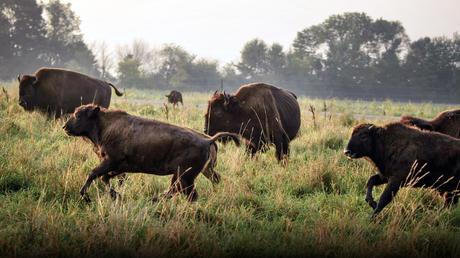
The sales of grass-fed beef is skyrocketing, as consumers are increasingly demanding the healthier and more ethically-produced option.
Can it be the real-food low-carb movement at work here? Probably. Regardless, it is great news for the environment:
Star Tribune: Rise of grass-fed meat forces industry to shiftAllowing livestock to graze on grasslands their entire lives is more costly and time consuming. But some ranchers and land advocates say this process moves beyond sustainability - which they say simply prevents further degradation - and can actually regenerate the land.
A 2016 study led by ecologist Richard Teague of Texas A&M University suggests that if soil carbon is factored into the equation, grass-fed beef produced through intensive rotational grazing results in lower greenhouse gas emissions than grain-fed beef.

